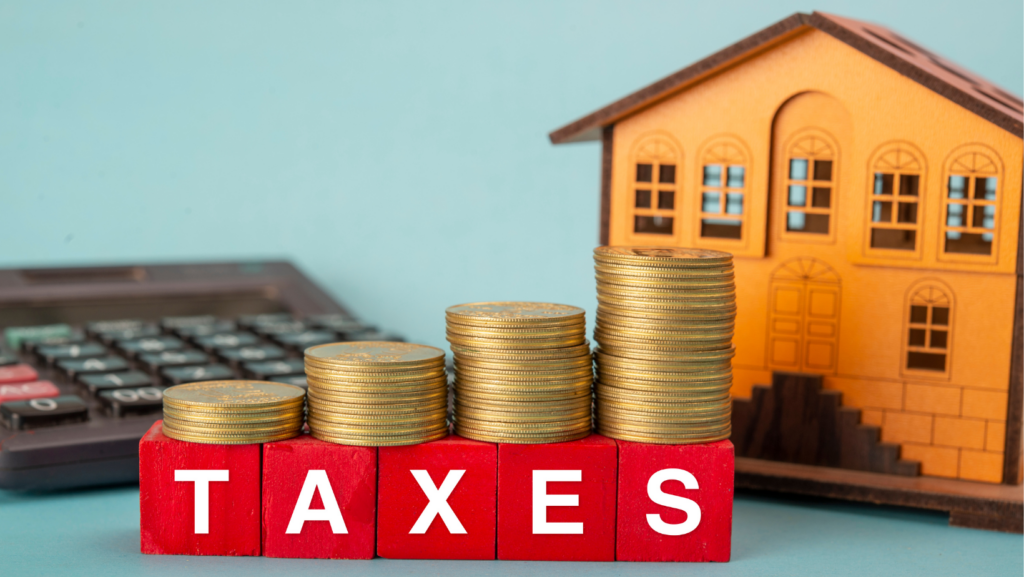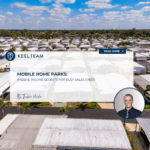Mobile Home Park Tax Efficiency: Tips for Likely Success During Tax Season
Introduction to Mobile Home Park’s Tax Efficiency
As mobile home park investors prepare for tax season, it’s crucial to explore strategies that help ensure a financially robust operation. The ability to identify and utilize tax deductions can significantly impact the bottom line. While the complexity of tax laws might seem daunting, understanding what expenses can be deducted can be a game-changer.

Navigating Mobile Home Park Tax Deductions: An Overview
Tax deductions typically serve as a relief valve for mobile home park investors, potentially mitigating costs associated with managing their investment. From mortgage interest and insurance premiums, to maintenance and administrative expenses, a wide range of deductions are available. However, it’s important to approach tax planning with diligence. When necessary, consulting with a tax professional is crucial to align with legal requirements and potentially maximize benefits.
Strategic Planning for Tax Season
Navigating through the complexities of tax laws demands a deep approach to financial management. Just as mastering a strategic game, investors must adeptly balance immediate needs with long-term financial health. Transitioning into this dynamic, with nearly a third of rental businesses encountering challenges in the early years, embracing tax deductions isn’t only beneficial; it’s likely essential for sustainability.
The Importance of Professional Guidance
While this guide offers insights into potential deductions, it’s not a substitute for professional advice. The intricacies of tax laws mean that specific circumstances dictate the applicability of deductions. Engaging with legal counsel helps ensure compliance and potentially optimizes your tax strategy, in turn safeguarding your investment against possible pitfalls.
Check out our eBook on the “Top 20 Things I’ve Learned from Investing in Mobile Home Parks” by Andrew Keel for more potentially valuable insights!

A Closer Look at Mobile Home Park Deductible Expenses
- Travel Expenses: Long trips to manage your mobile home park or check on properties can qualify for deductions, covering everything from mileage to accommodation.
- Mortgage Interest: A significant expense for many mobile home park investors, mortgage interest can be deducted, potentially becoming one of the most substantial deductions you can claim.
- Personal Property Taxes: Don’t overlook the potential to deduct taxes paid on business-related equipment and furniture, typically enhancing your property’s appeal without burdening your finances.
- Repairs and Maintenance: Distinguishing between maintenance (deductible in the year incurred) and improvements (depreciated over time) is crucial for accurate filings.
- Legal and Professional Fees: Costs associated with evictions, legal advice, and professional services directly related to your rental business are deductible, helping ease the financial strain of these necessary expenses.
- Marketing and Advertising: In the digital age, effective marketing is non-negotiable. Deducting these costs helps ensure your mobile home park remains competitive and visible to potential residents.
- Insurance: A wide array of insurance premiums, from property damage to liability coverage, are deductible, potentially providing a financial buffer against the unforeseen.
Embracing Technology and Modern Marketing
In today’s fast-paced world, technology and online marketing are indispensable tools for likely success. Consequently, mobile home park investors who lag in adopting digital solutions risk inefficiencies and missed opportunities. Moreover, utilizing property management software and engaging with potential residents through social media can help streamline operations and potentially enhance your property’s appeal.
Fostering Resident Retention
Beyond attracting new tenants, prioritizing resident satisfaction is often pivotal. Satisfied residents are more likely to renew their leases, which helps stabilize income and reduce turnover costs. Engaging community events, responsive maintenance, and clear communication contribute to a positive living environment, reinforcing the value of your mobile home park.
Conclusion: A Proactive Approach to Tax Planning
For mobile home park investors, a proactive and informed approach to tax planning is often indispensable. Moreover, by leveraging available deductions and embracing modern management practices, investors can potentially enhance their property’s profitability and sustainability. It’s crucial to remember that the landscape of tax laws is ever-evolving, making continuous learning and professional guidance key components of your financial strategy.
At Keel Team Mobile Home Park Investments, we’re dedicated to enhancing communities while potentially maximizing investor returns. Our focus is on improving residents’ lives while delivering strong profits to our partners. Get in touch using the contact details below to learn more about our investment approach and strategy.
Learn more about mobile home park investing.
Interested in learning more about mobile home park investing? Get in touch with us today to find out more.
Disclaimer:
The information provided is for informational purposes only and should not be considered investment advice, nor a guarantee of any kind. There are no guarantees of profitability, and all investment decisions should be made based on individual research and consultation with registered financial and legal professionals. We are not registered financial or legal professionals and do not provide personalized investment recommendations.
View The Previous or Next Post
Subscribe Below 👇





